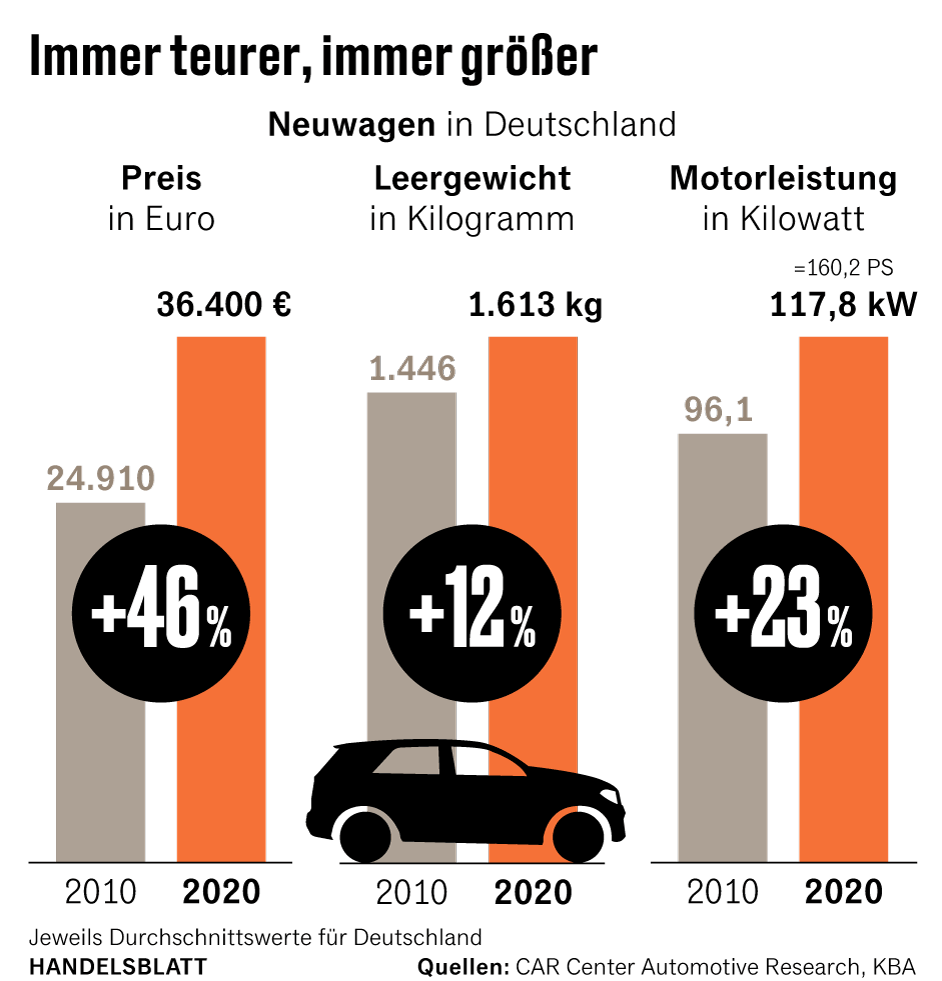The personnel director BMWs prepares the Dax group for higher growth.
(Photo: BMW)
Munich, Dusseldorf Record sales last year make the BMW group bolder again. “In Germany we will hire around 6,000 new people. We replace fluctuation with a third, the rest flows into the creation of jobs,” said HR director Ilka Horstmeier to the Handelsblatt. “We’ve grown a lot in the past few months, maybe even a bit faster than we thought,” explained the BMW manager. The company is very confident about future demand: “We are preparing for further growth. And we will be able to deliver when the electromobility market continues to grow.”
Horstmeier clarifies statements by CEO Oliver Zipse, who had already announced an increase in employment at the turn of the year. The group is looking for employees for production, in plant engineering, but above all for software specialists and process experts.
It is a reversal: the job creation follows almost immediately after a job cut that BMW agreed with the works councils in 2019. At that time, the Dax group had decided to cut 6,000 jobs in a socially responsible manner in the face of stagnating sales and falling returns. The cost cuts helped the group get through the corona crisis.
BMW came through the crisis better than the competition
Demand nonetheless remained high, and unlike in the financial crisis, the group had no sales problems. BMW is also much better supplied with semiconductors than the competition. While Mercedes and Audi repeatedly had to stop production last year due to the lack of chips, production at the Munich-based company ran largely undisturbed.
Top jobs of the day
Find the best jobs now and
be notified by email.
As a brand, BMW delivered more cars than Mercedes for the first time since 2015. In the medium term, the group wants to increase sales from the current 2.5 to three million vehicles per year, and an additional factory is being built in Hungary. BMW is planning half a dozen new electric models to be built at its German plants in the coming months.
BMW has been steering production and staff towards electromobility for years. Seat production was outsourced in Dingolfing, and engine production in Munich was relocated to Austria and Great Britain. Both plants will be converted to e-mobility, which also includes the production of electric motors. Unlike Audi or Volvo, for example, BMW does not want to commit itself to “a generally applicable date for phasing out combustion technology”. “We are on a growth path and do not want to go on a contraction course,” says Horstmeier, justifying the adherence to petrol and diesel.
>>> Also read: The ten most popular electric cars in January 2022.
BMW is currently not the only automaker looking for staff again after the crisis. Tesla wants to create up to 12,000 new jobs in its new factory in Brandenburg. Volkswagen and Mercedes are also looking for electromobility specialists and software engineers. In the automotive industry, the number of job advertisements in the IT sector is increasing significantly faster than for
classic engineering positions. This is shown by an evaluation by the HR consultancy Hays, which is available to the Handelsblatt. For the analysis, which the Berlin Index Group has been conducting together with Hays on a quarterly basis since 2015, all advertised positions in printed media, online job exchanges and career sites on the Internet are counted and evaluated.
Immigration is the only thing that will help in the long term
In the automotive industry, for example, the number of job advertisements in engineering has increased by 81 percentage points since the beginning of the corona crisis. In IT, the number of advertised jobs at car manufacturers and suppliers grew by 91 percentage points over the same period.
The most sought-after positions in the industry include IT developers (up 146 index points since the fourth quarter of 2019, i.e. before Corona), software developers (up 109 index points) and IT security specialists (up 115 index points). In the case of engineers, development and test engineers are particularly in demand.
“Currently, no existing product is changing as much as the automobile – and the topics of batteries and autonomous driving are two huge pieces of cake,” explains Olaf Szangolies, partner at the HR consultancy Odgers Berndtson. The large car manufacturers in Germany absolutely need capable IT specialists for both. The problem: According to the Bitkom industry association, there are currently 96,000 vacant IT positions in Germany.
According to BMW, recruiting skilled workers for the auto industry is not yet a major problem. In the long term, however, politics must react to the steadily worsening shortage of skilled workers. “We need immigration for certain occupational groups, so we have to reduce bureaucracy and recognize qualifications more quickly,” demands Ilka Horstmeier. “We also need to increase the employment rate among women. And we need to invest in education and training, especially in the natural sciences.”
More: The luxury strategy of Audi, BMW and Mercedes could still take revenge.

